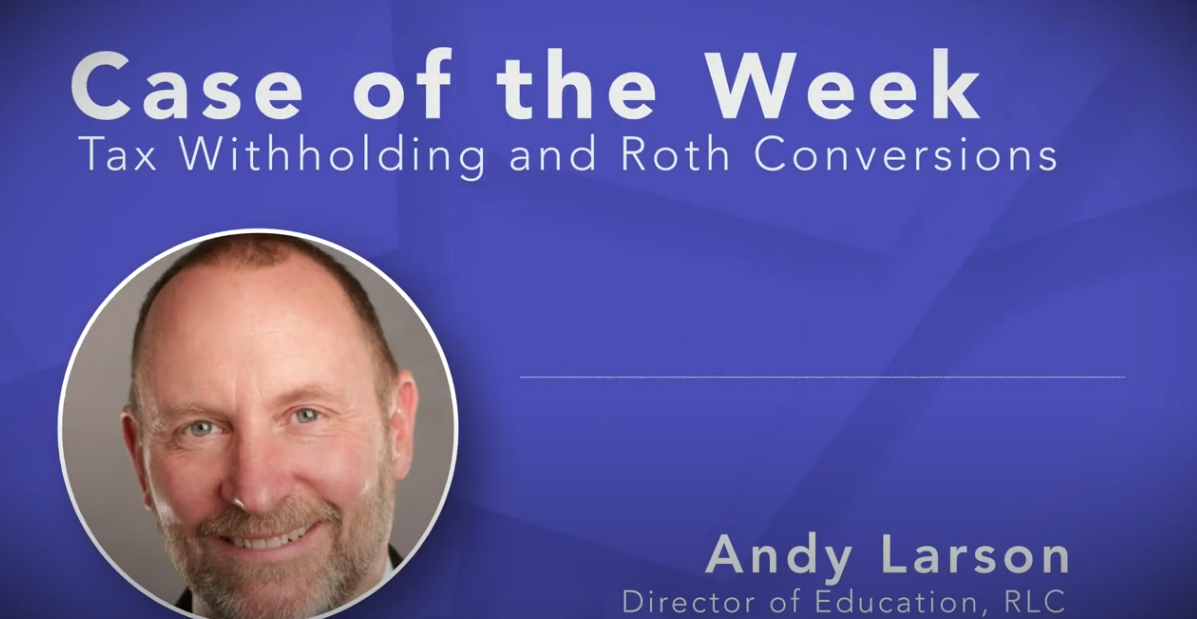By Jenny Kiffmeyer, J.D – The Retirement Learning Center
My client executed a large Roth conversion in the fourth quarter of last year and the IRS subsequently notified her that she owed a penalty because of underpayment of estimated taxes. How did this happen and what can she do about the penalty? Click on the image below to view YouTube version of the video
Highlights of the discussion on tax withholding and Roth conversions
Please note: Any information provided here is for informational purposes only. Individuals should consult with their tax advisor and/or attorney regarding their specific situation and needs.
Let us first review the rules concerning the timing of tax payments. Generally, the IRS requires at least 90 percent of taxes owed throughout the year through withholding, estimated or additional tax payments or a combination of the two, payable before the April 15th tax filing date. Many individuals make quarterly estimated tax payments to avoid the underpayment penalties.[1]
However, certain retirement-related transactions, such as large taxable distributions from IRAs, 401(k) plans, Roth conversions, etc., may trigger a penalty assessment. Recall in this situation, the client made a large Roth conversion in the fourth quarter of the year. Unfortunately, the IRS assumes that taxable income from transactions like these occurs throughout the entire tax year. Thus, from the IRS’s perspective, the large fourth quarter Roth conversion occurred throughout the year and because the individual did not make estimated tax payments in the first three quarters, she owed a penalty.
Fortunately, the client may be able to request a penalty waiver by filing IRS Form 2210, Underpayment of Estimated Tax by Individuals, Estates, and Trusts. The client would note the large Roth transaction occurred in the fourth quarter and, therefore, quarterly estimated taxes should not be due in the first three quarters. Individuals should work with their tax advisors for correct completion of Form 2210.
Conclusion
Any time a client has a late-year, large retirement-related taxable event, such as a Roth conversion or any large distribution, a discussion with a tax and/or legal advisor about IRS Form 2210 and how it may be used to request a penalty waiver is warranted.
[1] IRS Basics of Estimated Taxes for Individuals


